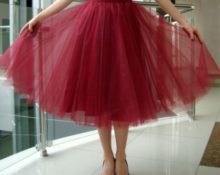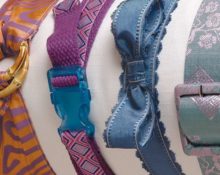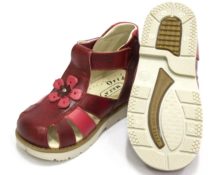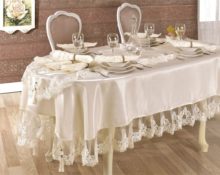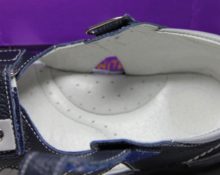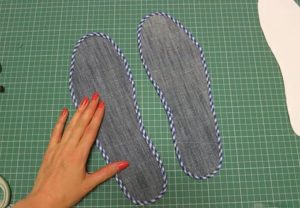 One of the important elements in shoes is the insoles. Their main purpose is to close seams and create comfortable wearing conditions. They can also perform various functions:
One of the important elements in shoes is the insoles. Their main purpose is to close seams and create comfortable wearing conditions. They can also perform various functions:
- provide comfort when walking;
- correct the arch of the foot;
- evenly distribute the load on the legs;
- provide an additional layer to prevent moisture from entering and retain heat.
You can choose any model of insert insoles depending on the purpose and main purpose for which you want to buy them. But it’s best to create them yourself. This way you can choose the right material and adjust all the necessary sizes and shapes of the product.
How to make thin insoles
Let's consider the simplest option for creating thin insoles.
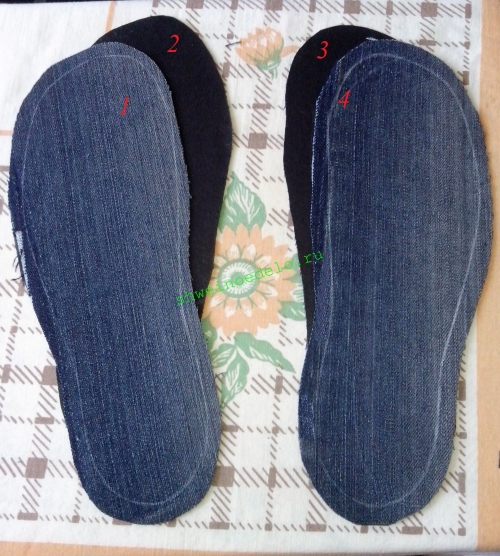
Materials and tools
To do this you will need the following tools and materials.
- Denim or any wear-resistant fabric to create a reliable and durable product.
- Sewing machine or set of threads and needles for sewing.
- Pencils, ruler, bar of soap for marking the material.
- Can also be used graph paper to create a pattern.
Manufacturing
After preparing everything you need, you can begin creating the product. To do this, follow everything according to the presented plan.
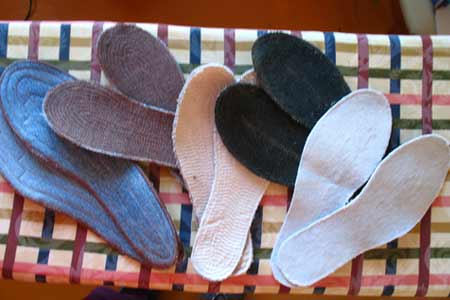
- Place your feet on the paper and trace the outline of your foot.
- Transfer the resulting silhouette onto denim using a bar of soap or chalk. Leave a margin of approximately 0.5–1 cm for stitching the material.
- Cut out 2 pieces for each foot. In total you should have 4 blanks.
- After this, place the 2 parts on top of each other, sew the edges using a sewing machine or by hand. Iron all seams.
- After this, insert the product inside the shoe, process the edges if necessary.
IMPORTANT! The choice of denim is based on its durability and ease of use. This material is convenient to wash and reuse.
How to make thick insoles
To make warm insoles, you will need to apply the plan described above. But as a material you should take a denser fabric or add wool to the base of the workpiece. The set of tools will not differ from the method of manufacturing the thin version.
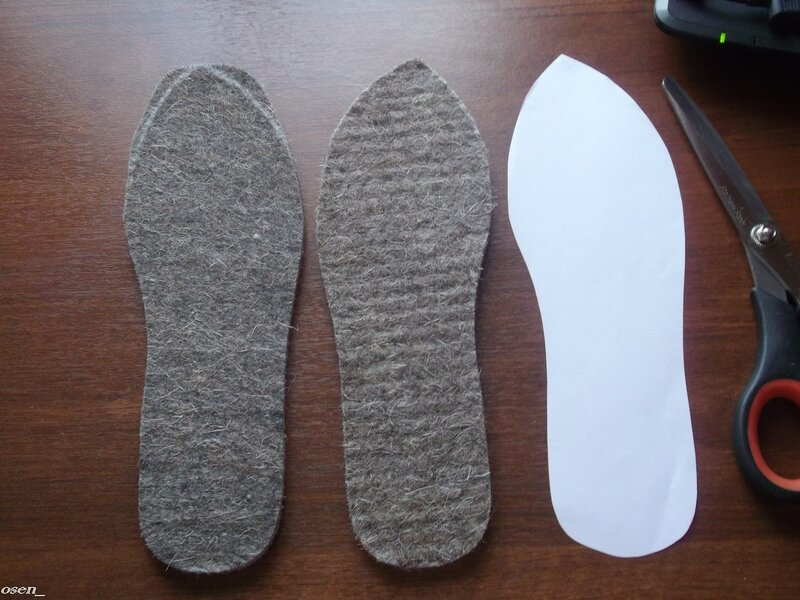
The most important difference is the use of wool inside the product.
Advice! Before sewing the top and bottom parts together, place insulated material.
Sew the edges, smooth the product and insert it into the shoes.


 0
0
